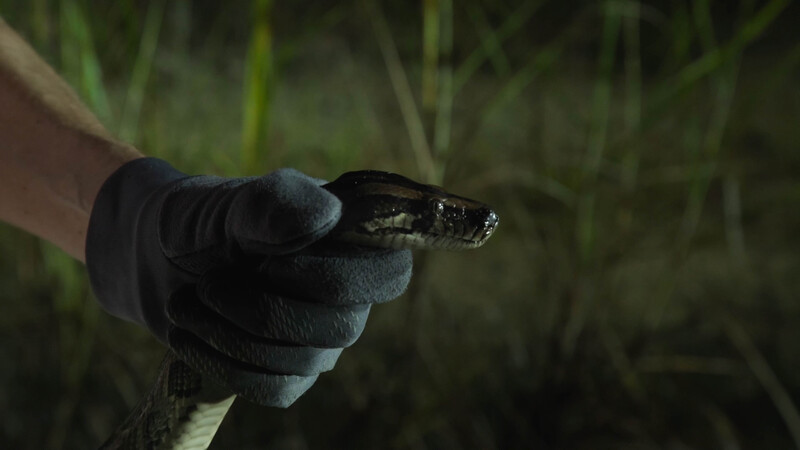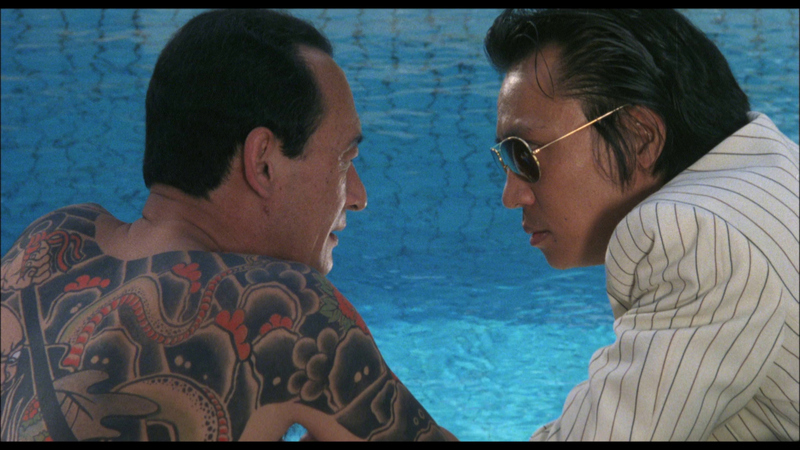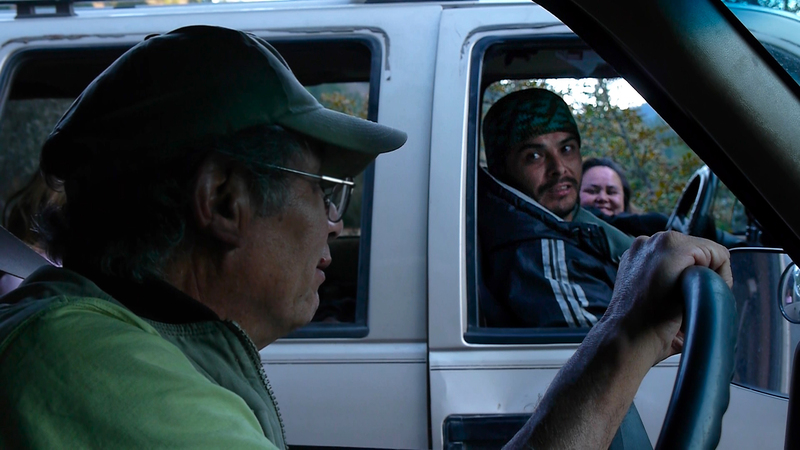
Conversations Between Land and Legacy
MOVIE REVIEW
River of Grass
–
Genre: Documentary
Year Released: 2025
Runtime: 1h 23m
Director(s): Sasha Wortzel
Where to Watch: shown at the 2025 Margaret Mead Film Festival
RAVING REVIEW: Sometimes it’s not the warnings or bold declarations that stay with you, but the soft-spoken truths that echo the longest. This film doesn’t push its message with urgency; it seeps in through the details: a glance at a weathered shoreline, the hush of tall grass in motion, the way memory resurfaces without fanfare. It's a project built on patience and perspective, where personal recollection meets environmental urgency in a story that unfolds more like a conversation than a lecture.
The opening establishes this tone immediately, using personal memory as a gateway into something larger. From there, the project broadens, shifting from the individual to the communal. Rather than focusing solely on environmental statistics or doom-and-gloom projections, it opts to showcase the human stories unfolding within a threatened ecosystem. Interviews with locals—fishermen, conservationists, and indigenous leaders—give the piece a varied tone, emphasizing different stakes and worldviews. These voices aren't just informative but central to the narrative's evolution.
One of the film's strongest choices is its resistance to a traditional linear structure. It moves organically, often pairing testimonials with immersive visuals that highlight the interconnectedness of everything. There’s no hard divide between past and present, just as there’s no easy division between human action and environmental consequence. The blend of archival material and present-day interviews avoids the trap of nostalgia while still allowing memory to play a crucial role.
Cinematography plays a major role in how the story is absorbed. The visual style favors a more observational approach that allows natural elements to speak for themselves. The Everglades aren’t treated as a backdrop—they’re the living context for every conversation, memory, and protest. Whether the camera hovers over glinting waterways or lingers on damaged landscapes altered by human interference, the emphasis remains on quiet reflection. The visual restraint feels deliberate and in harmony with the larger narrative goals.
Equally notable is the film’s sound design. Instead of an overpowering score or heavy-handed cues, it integrates environmental sounds—such as water moving, leaves rustling, and insects humming—with a subtle, moody soundtrack. The auditory choices work not just to set mood but to reinforce presence, making it feel like you’re being drawn into the surroundings rather than watching from a distance.
A conservationist whose voice and chronicled takes help contextualize the historical challenges and efforts that shaped the public's understanding of this region is a recurring presence throughout the film. Her words are not positioned as gospel but as part of an evolving conversation, especially with an out-of-character moment where she mentions there is no rush for change, and she doesn’t understand Americans' desire for instant gratification. The film builds a bridge between generations and approaches by incorporating her story alongside those working to protect the area. It refuses to settle on one type of advocacy, instead spotlighting a mosaic of spiritual, political, and practical approaches.
Including Miccosukee voices, especially those who see the land as more than just geography, adds another dimension. Their contributions shift the discussion from one of preservation to one of an ongoing relationship. When they speak of water as having memory or emotion, it may seem metaphorical at first. Still, within the film’s framework, it feels like a necessary reframing of how we perceive our surroundings. This perspective—rooted in care, not control—adds spiritual depth without turning didactic.
What starts as one person’s effort to reconnect with a childhood becomes more universal: a meditation on how our stories, cultures, and bodies are shaped by the places we call home. The film doesn’t aim to guilt viewers into action. Instead, it fosters a kind of quiet reckoning—an invitation to look inward while looking outward.
Rather than wallow in helplessness, the film counters environmental despair with glimpses of collective resilience. Scenes showing prayer walks or removing invasive species aren’t symbolic—they’re acts of reclamation. People aren’t just talking about change; they’re embodying it. These portraits avoid the savior complex that sometimes plagues activist documentaries. Instead, they frame care as a shared responsibility, not a heroic deed.
By framing ecological health as deeply personal rather than only scientific, the project opens the door for a different audience engagement. It asks what can be done politically or practically and what kind of relationship we have to the land, memory, and legacy. That emotional angle may not sway policy, but it might shift hearts, which is meaningful.
This is a film that sits with you. It lingers. And in doing so, it reshapes how we think about stewardship, not as an obligation, but as something rooted in identity and community. It’s a film that succeeds because it trusts its audience to listen, to reflect, and maybe—eventually—to act.
Please visit https://linktr.ee/overlyhonestr for more reviews.
You can follow me on Letterboxd, Instagram, Twitter, and YouTube. My social media accounts can also be found on most platforms by searching for 'Overly Honest Reviews'.
I’m always happy to hear from my readers; please don't hesitate to say hello or send me any questions about movies.
[photo courtesy of FIELD OF VISION, WALKING PRODUCTIONS]
DISCLAIMER:
At Overly Honest Movie Reviews, we value honesty and transparency. Occasionally, we receive complimentary items for review, including DVDs, Blu-rays, CDs, Vinyl Records, Books, and more. We assure you that these arrangements do not influence our reviews, as we are committed to providing unbiased and sincere evaluations. We aim to help you make informed entertainment choices regardless of our relationship with distributors or producers.
Amazon Affiliate Links:
Additionally, this site contains Amazon affiliate links. If you purchase through these links, we may receive a commission. This affiliate arrangement does not affect our commitment to honest reviews and helps support our site. We appreciate your trust and support in navigating these links.



Average Rating